news
GFDD Screens Environmental Documentary “Play Again” and Launches School Vegetable Garden Initiative
February 1, 2012
As part of its follow up to the I Dominican Republic Environmental Film Festival (DREFF), which took place last September, GFDD organized initiatives aimed at encouraging Dominicans to forge a deeper connection with the environment.
On Tuesday, January 31, GFDD hosted a special screening of the environmental documentary Play Again at FUNGLODE Headquarters. The film follows the lives of six American teenagers that spend more
time in the virtual world than the natural environment. The moving documentary explores the consequences of a life removed from nature and encourages viewers to take steps towards a more sustainable future.
The film screening was followed by an informative panel featuring: Maria Quirico, Coordinator of School Gardens Program; Rose Lord of Make Gardens not War; and Ana Marte from the New Horizons School.
In accordance with
the message of the film, on Wednesday, February 1 GFDD launched a school vegetable garden initiative with the Babeque High School. The idea behind the initiative arose from the interest sparked among students participating in talks, panels and workshops conducted by Rose Lord during the I Dominican Republic Environmental Film Festival. Rose Lord represents the Make Gardens Not War, an initiative of the Global Coalition for Peace, which seeks to encourage the creation of vegetable gardens
around the world.
The school vegetable garden initiative seeks to supplement middle and high school curriculums in the following ways:
1) strengthen Natural Science curriculums through inclusion of experimental activities;
2) teach students about how recycled organic matter can serve as organic fertilizer;
3) create awareness of the importance of a balanced diet;
4) create a how-to manual on
school vegetable gardens; and 5) offer students a space for recreation, relaxation and physical activity.
The Vegetable Garden Initiative seeks to serve as a practical teaching tool to reinforce the following integral components of middle school and high school science curriculums:
Seventh grade:
- Relations of plants with the environment: tropism, hormones
- Relations among
living beings - Relations between animals and their environments
- Ecosystem and its dynamics
- Energetic flows
- Natural resources, types and preservation
- Measures in avoiding contamination
- Classification – pure substances and mixtures
- Periodic table – physical, chemical and periodic properties of elements
Eight grade:
- Light as waves
- Luminous energy
- Light reflection and refraction applications
- Food production
Ninth grade:
- Chemical basis of life – biogenic elements
- Cell theory – types, structure and function
- Classification of living beings – taxonomy, taxonomic categories and binomial system
Tenth grade:
- Life processes in plants and animals
- Organography and functions of life systems in plants and animals
- Nutrition: autotrophic and heterotrophic
- Nutrition, circulation, respiration and reproduction
- Digestion – life processes of human beings
projects aspire to encourage citizens of the Dominican Republic and citizens of the world to adopt practices that will positively contribute to the sustainability and health of the natural environment.
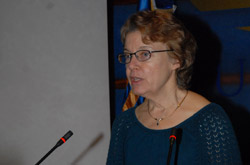 |
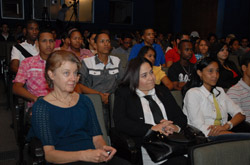 |
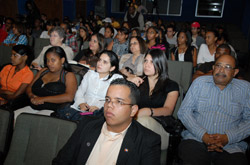 |
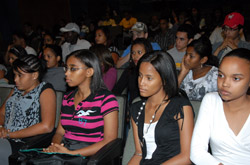 |
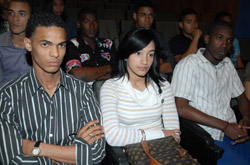 |
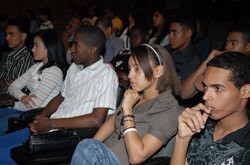 |
 |
 |
 |
 |
 |
 |
Links:
Video – Making a Community Garden with Rose Lord, Babeque School
Video – Making a Community Garden with Rose Lord, Consa School
http://www.makegardensnotwar.com/intro.htm






